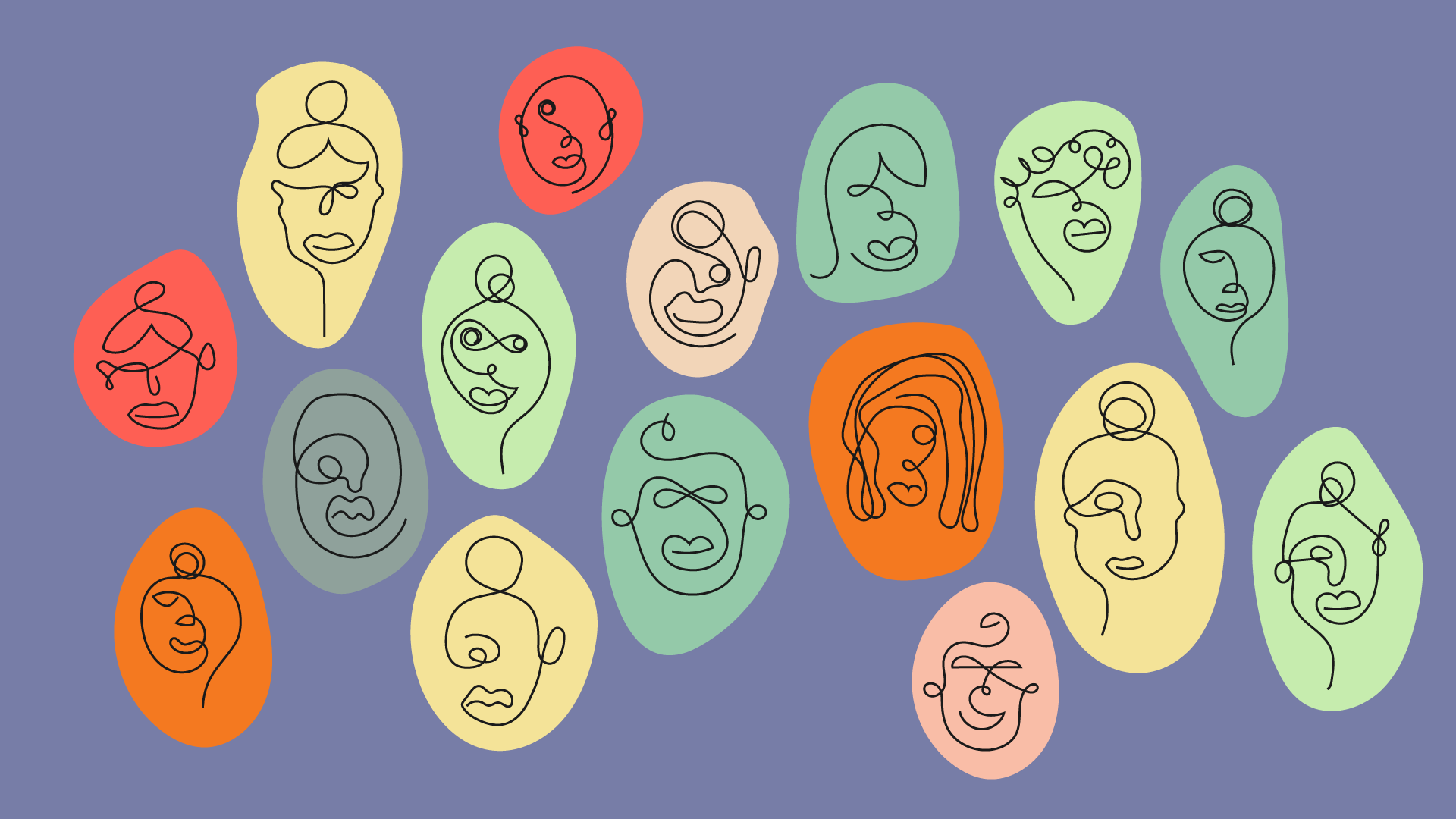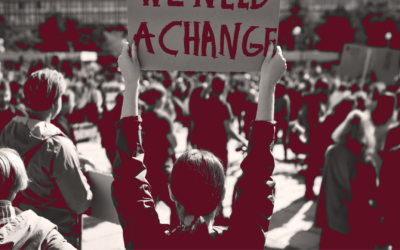
The Young Generation after the Tempi Train Disaster – The key messages and conclusions of Eteron’s research
Eteron submitted its new research to the public debate in an attempt to trace the dominant trends amongst the young generation after the tragic train accident in Tempi. It is a quantitative research, under the scientific supervision of Loukia Kotronaki, lecturer and postdoctoral researcher at the Department of Political Science and History of Panteion University. The data of the survey was collected by aboutpeople, on behalf of Eteron Institute, in mid-April 2023 in a sample of 634 people, between the ages of 17 and 34.
The head-on collision of two trains, the deadliest railway accident ever recorded in Greece, is not something that the human mind can easily accommodate. The loss of so many lives, the majority of whom were under 30 years old, came as a shock that plunged society into mourning and, at the same time, led to several days of nationwide mobilisations, the largest seen in the past decade. It is therefore an event with a profound impact that is still difficult to assess in its entirety.
In an initial attempt in this direction, Eteron’s research findings enhance our perspective on young people’s participation in protest actions organised after the Tempi train disaster and the broader impact they may have on social and political processes. The research comes as part of Eteron’s new project “Youth – Voice On”, which is a continuation of the “Gen Z – Voice On” project, focusing on a wider age range of young people aged 17-34.
So what can we draw from the research on participation in the mobilisations, who do young people hold responsible for the accident and what is the role of emotions in young people’s collective action?
Let’s address these questions starting from the last one. The dominant emotion experienced by young people at the time of the survey, a month and a half after the tragic accident, is rage (43.7%), followed by despair (19.7%) and then shame (17.4%). The role of emotions in collective action and their significance for the analysis of political behaviour has been strongly emphasised in recent years by numerous researchers in Greece and abroad and has had an impact on the methodological strategies of social research.
As D. Paraskevopoulos, postdoctoral researcher at the University of the Aegean, notes in his book “An introduction to the sociology of emotions”, published a few months ago, emotion is not merely an individual affair. Rather, as he explains, its manifestation or causality is placed at the intersection of the individual and the social, within their intertemporal dialectical connection.
This link between the individual and the social is also crucial in order to understand the research findings in relation to the attribution of responsibilities for the accident. The research reveals that the younger generation does not accept that responsibility for the accident is limited to any errors committed by the stationmaster, but rather highlights the structural and overall political responsibilities for the state of the railways. In the relevant question, where they could select up to two answers, 59.5% say that the current government is mainly responsible for the accident, 58.3% blame all the past governments and only 13.1% say that the stationmaster is mainly responsible. The tactic of placing strong emphasis on individual responsibility is a recurring pattern in the dominant discourse, and one that was applied extensively during the pandemic period.
It is interesting to revisit this emphasis on individual rather than social causation in relation to the mechanism of the “depoliticisation of pain”, as described by James Davis, Reader in Social Anthropology and Mental Health at the University of Roehampton, in a recent interview with Kathimerini. Davis explains that “this mechanism conceptualises pain in a way that shields the current economy from criticism by reframing pain as rooted in individual rather than social causes.” This way, according to the professor, the system is very good at privatising pain and redefining individual mental health in line with the goals of the economy.
In this context, we could argue that the mobilisations over the accident in Tempi re-politicise pain through repertoires of action, such as rallies, protests, strikes, cultural, artistic and other inventive original initiatives in memory of the victims, most notably the slogan “we shall be the voice of all those who died”. Thus, the pain of loss and the collective mourning is connected to the powerful demonstrations and collective actions, which are still happening today. In this respect, it is worth mentioning the unveiling of a monument by the student associations of the Aristotle University of Thessaloniki for the students who perished in the accident and the march in memory of the victims in Larissa, organised by the newly formed Association of Victims of the Tempi Accident.
Looking into the major mobilisations of March 2023, Eteron’s research reveals the significant participation of young people, with 3 out of 8 people responding that they have participated in them (37.8%).It is indicative that according to Public Issue’s survey data, published on 21 March 2023, the participation rate in the general population aged 17 and over is 30%, a 12-year record in Public Issue’s monthly statistics. Returning to Eteron’s research on the younger generation, it is worth noting that among young Millennials (25-34 years old), the participation rate in the mobilisations is even higher (39.2%).
To get better sense of those numbers, if we make a projection of this percentage in the general population of young people aged 25-34 (according to relevant data by the Hellenic Statistical Authority, the number is approximately 1,144,000), the young people aged 25-34, who participated in protest actions over the Tempi accident nationwide, were just shy of 450,000. Moreover, looking at the correlation between the responses and the gender variable, it appears that young women had a higher participation rate than young men.
Almost 1 in 3 people said that they participated in an organised block of school coordinating committees, student associations, trade unions or political parties/organisations, while 54.3% of them were informed about the mobilisations mainly through Social Media, with Facebook and Instagram being the most popular information sources. It is particularly significant and also indicative of the new politicisation trends, that for 13.6% of those who participated in them, the mobilisations over the Tempi train disaster were their first experience of participating in a demonstration over any social issue. This percentage is even higher amongst women (16.3%).
It is also reasonable to assume that this rate is probably even higher amongst secondary and early high school students, who are not included in the research sample. In this respect, in any case, it is significant that in the research’s upper age range, i.e. the young Millennials, aged 25-34, there is also an 11.5% of people for whom the post-Tempi mobilisations were their first encounter with social movement action repertoires.
Amongst first-time demonstrators, the majority stated insecurity as the prevailing emotion, rather than rage. Referring back to the total number of people who filled in the questionnaires, both those who did and those who didn’t participate in the protest actions, a large majority of approximately 70%, agree with the statement that the police used excessive force during the Tempi protests. The train crash seems to have influenced many (60-80%) young people’s views on a range of issues such as the State’s reliability, the country’s future, privatisation, the Government, the political parties that have governed and political parties in general. At the same time, what is most affected is the feeling of transportation safety (87.6%).
This is why the question “What do you think needs to change in order for rail transport to be safe?” is particularly pertinent. The responses reflect young people’s disapproval of the railway privatisation with the majority supporting the re-nationalisation of all passenger services. Generally speaking, as observed in previous surveys carried out by aboutpeople on behalf of Eteron, it is clear that for the majority of young people the word privatisation stands for something bad. For example, in Eteron’s research from last year, “What do we think about the post-pandemic economy?” (February 2022), 60.6% of young people aged 17 – 24 and 63.2% of those aged 25 – 34 share this view, while the percentages are almost analogous in Eteron’s recent research called “An Insight into the Minds of Voters: Ideologies” (March 2023), as we will see in a few days in Eteron’s related analysis by age group.
What broader trends are captured and what can we learn from Eteron’s research regarding young people’s distrust, opinions and ideological-political positioning?
The answers regarding movement developments in the time period before the accident in Tempi are also indicative. More specifically, the vast majority of young people (77.2%) agree with the artists’ mobilisations over their professional rights and studies recognition that lasted for several months.
Another fact that is particularly significant is the young people’s response to the government’s failed attempt to set up a university police force, which was prevented after months of mobilisations by the student movement. Just like in the previous Generation Z research released in December 2021, Eteron’s new research on a larger sample and age range shows that 50.3% of young people state that they disagree or somewhat disagree with the government’s decision compared to 35.2% who agree or somewhat agree with the establishment of the university police.
The vast majority that agree with the artists’ mobilisations and disagree with the establishment of a university police force are both significant in the sense that, in all their diversity, both the artists’ movement and the student movement – along with the school coordinating committees and the trade unions – played a crucial role in organising the post-Tempi mobilisations.
The biggest problem that Greece is currently facing, according to the new generation, is expensiveness and the cost of living, with corruption coming in second place. Following trends identified in previous research conducted by Eteron and other research institutions, the findings of the new research show that after the Tempi accident, the crisis of trust in institutions intensifies, with the government – as an institution – and political parties in general scoring higher levels of distrust. The findings concerning the media are similar, with young people turning their backs on television (86.7% say they have little or no trust in it) and newspapers (72.2%), while they prefer news websites and their social and family circles as information sources.
In terms of broader aspects of young people’s participation in public life, cultural organisations are in the lead in terms of participation, while one in ten people say they participate or have participated in the past in a political party or youth organisation and 48.2% stated that they “don’t know/don’t want to answer”. From the associations made, we can see that participation increases the higher the level of education, and it is worth noting that 1 in 2 people say that they have participated in rallies and demonstrations in the past and 1 in 4 in strikes/work stoppages.
At this point, it is interesting to reflect on the above in the light of the ideological-political positioning of young people, as it emerges from their answers in relation to the current that most expresses them. Although we can detect a left-leaning attitude, at the same time it is worth noting that the most popular response was “None (no ideology), I believe in the individual” (22,2%), while a considerable percentage (19.3 %) chose the reply “I don’t know/I don’t want to answer”. So while neoliberalism registers very low popularity ratings in the survey (4.3%), its visible and invisible effects are still strong, with individualism and the anti-political rejection of all ideologies dominating. Of course, in order to delve deeper into the various interpretations of these responses or to outline the profile of those who choose not to respond, we would need to conduct further studies using qualitative research methodologies (focus groups, interviews, etc.).
However, the correlation between ideological-political currents and stances towards socio-political issues that divide the public debate, such as the university police, for example, which we commented on earlier, is not linear. Notably, of those who answered “No ideology – I believe in the individual”, only 29.9% agree with the establishment of a university police force. By contrast, among those who state that liberalism and neoliberalism expresses them more, the rates of agreement with the establishment of the university police reach 61.9% and 73.8% respectively. Certainly the factor of “loose” responses should not be underestimated, but the difference is obvious and requires further investigation.
The picture is completed by the responses to the multi-option question “how could you improve your life?”, where the leading answer is “by personally making individual efforts” (66.2%), followed by “by voting – governmental change” (35.5%) and the third was “by participating in collective actions and social movements” (33.2%), while 8.8% said that nothing could be done to improve their lives. Again, the cross-associations enrich our perspective, as it turns out that more than 1/3 of those who advocate for making individual efforts in order to improve their lives, also participated in the protests after the Tempi disaster. In fact, let’s think about this the other way around: although they participated in the protests, they have not come – or at least not yet – to the conclusion that collective action is a means to improve one’s life.
How will the youth vote influence the upcoming elections and what conclusions can we draw from this research at the end of the day?
We deliberately chose not to include voting intention in the presentation of Eteron’s research results, because it would draw all the attention and divert the discussion away from the other topics we are trying to address. However, we have included some questions which directly challenge the prevailing narrative that the younger generation will not participate in the elections, although it still remains to be seen if their actions will match their intention.
More specifically, it is noteworthy that 82.1% of young people stated that they intend to vote in the parliamentary elections on the 21st of May. At the same time, there is overwhelming support for the statement suggesting that “seasonal workers in tourism should be able to vote in their place of work” (84.4%), which is to be expected given that many young people are employed in this sector during the summer in precarious working conditions. This finding becomes even more significant when viewed in conjunction with the fact that 77.5% said that they intended to vote anyway in July, if a government does not form after the first round of elections.
It remains to be seen to what extent and in what direction the rage and desperation of the young people will be expressed in the ballot of the parliamentary elections and the student elections that precede it. As for the issues that will influence their voting behaviour in the parliamentary elections, the Tempi accident comes in 4th place, after justice-transparency and economy-growth, while the first place is occupied by inflation and expensiveness, which, as mentioned earlier, is listed by the young generation as Greece’s most serious problem.
In conclusion, we could say that the post-Tempi mobilisations deepen pre-existing tendencies of politicisation amongst the new generation and contribute to the new politicisation of people who chose to get involved in collective actions for the first time. The accident itself and the events that followed intensified young people’s distrust towards the institutions and had a major impact on their views on crucial issues. We would say that they have caused a shock, without yet being in a position to talk about a paradigm shift. It would be a mistake to underestimate the contradictions reflected in the findings, the confusion and the ongoing conflict between ideological-political currents within the new generation, with the importance, on the one hand, of the role of collective action, empathy, solidarity and a new left-leaning politicisation and, on the other hand, the significant influence of individualism and other key pillars of the dominant ideology.
By broadening the scope to the new generation, the findings enrich and reinforce the main conclusions included in Eteron’s collective e-volume, released in February 2023, entitled: “Gen Z, Politics & Social Media during the Pandemic: Research Findings and Commentary”.The new generation is struggling, they’re “hurting”, “can’t breathe” and are approaching politics in both traditional and innovative ways. As we have stressed before, the processes taking place within the new generation serve as a sensitive “seismograph”, indicating the direction society is heading towards, the dynamics reflected and the emerging alternatives. Eteron’s new research provides prompts for meaningful discussion without simplistic generalisations, by recording trends, as well as the fluidity and open field that lies ahead, as the new generation is still being formed and within it one finds a confrontation of ideas, practices and values, which is manifested at every level, be it political, social or cultural.
This article was originally published in Greek on May 8th 2023.
Read also:





